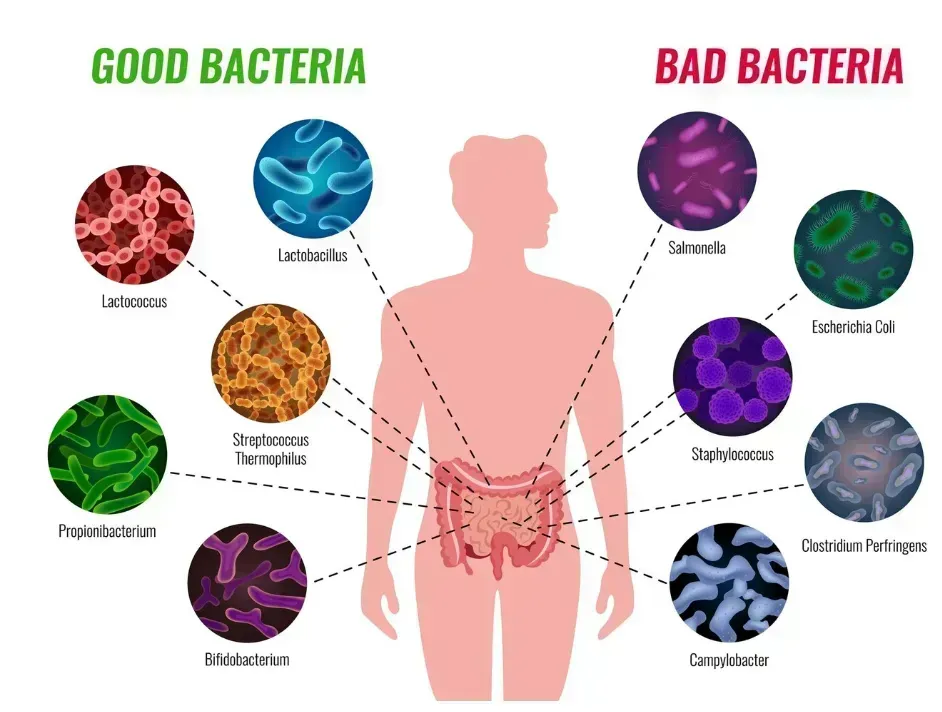Good Gut Bacteria: The Guardians of Health
Digestive Allies: Beneficial bacteria aid in breaking down complex carbohydrates, making it easier for the body to absorb essential nutrients.
Immune Support: Good bacteria contribute to the proper functioning of the immune system, acting as a shield against harmful pathogens.
Mood Modulators: Some strains of beneficial bacteria are linked to the production of neurotransmitters, influencing mood and mental well-being.
Bad Gut Bacteria: The Disruptors
Inflammation Instigators: Harmful bacteria can trigger inflammation in the gut, potentially leading to various digestive issues and chronic conditions.
Nutrient Thieves: Bad bacteria may compete for nutrients, potentially depriving the body of essential elements.
Toxin Producers: Some harmful bacteria release toxins that can have detrimental effects on the gut lining and overall health.
FAQs on Gut Bacteria
1. How do I know if I have an imbalance in my gut bacteria?
Symptoms may include digestive issues, frequent infections, mood swings, and fatigue. Consult a healthcare professional for a comprehensive assessment.
2. Can diet influence gut bacteria?
Yes, a diet rich in fiber and fermented foods can promote a healthy balance of gut bacteria.
3. How do antibiotics affect gut bacteria?
Antibiotics can disrupt the balance by killing both good and bad bacteria. Probiotics may help restore equilibrium.
4. Are probiotics necessary for a healthy gut?
While not essential for everyone, probiotics can be beneficial for maintaining a balanced gut microbiota, especially after illness or antibiotic use.
5. Can stress impact gut bacteria?
Yes, stress can alter the composition of gut bacteria. Practices like meditation and yoga may help mitigate this impact.
6. Are all bacteria in the gut harmful?
No, many bacteria in the gut are beneficial and essential for various bodily functions.
7. How does gut health influence weight?
The balance of gut bacteria can affect metabolism and nutrient absorption, potentially influencing weight.
8. Can I improve my gut health naturally?
Yes, adopting a diverse and fiber-rich diet, staying hydrated, and managing stress are key components of promoting gut health.
9. How does age affect gut bacteria?
The composition of gut bacteria may change with age. Maintaining a healthy lifestyle becomes crucial for preserving gut health.
10. Should I take prebiotics along with probiotics?
Prebiotics, found in certain foods, promote the growth of beneficial bacteria. Combining them with probiotics can enhance their effectiveness.
Closing Thoughts: Nurturing Your Gut Garden
Achieving a harmonious balance between good and bad gut bacteria is essential for overall well-being. By making mindful lifestyle choices, including a nutritious diet and stress management, you can foster an environment in which the good bacteria thrive, creating a foundation for optimal health. Consult with a healthcare professional for personalized advice on maintaining a healthy gut microbiota. After all, a healthy gut is a cornerstone for a healthy life.






